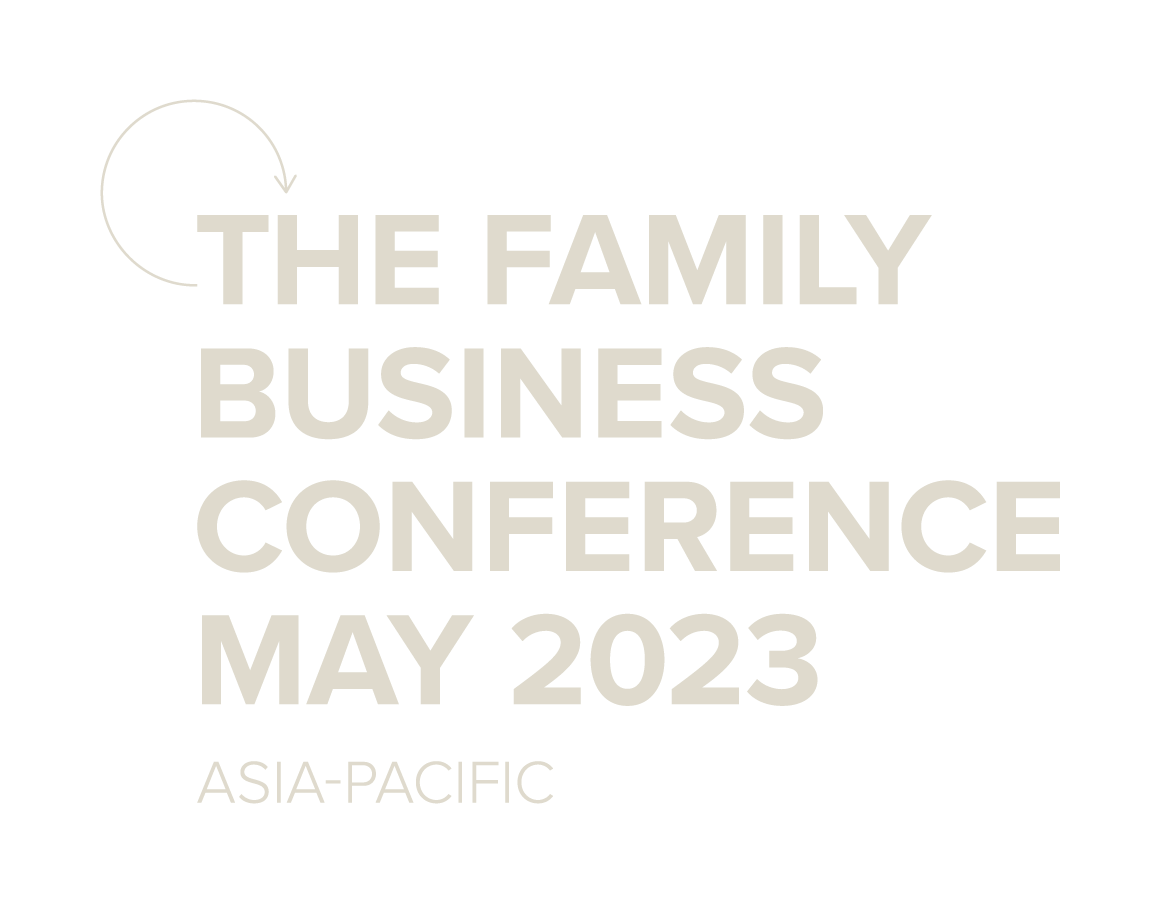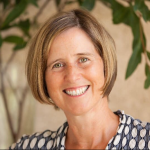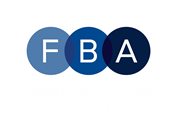Program
Expand All +
10 May 2023
11 May 2023
12 May 2023
- 08:30 - 12:00
SA Family Business Site Visits
As part of the Family Business Conference 2023 program, we are excited to offer full delegates the opportunity to visit a number of South Australia’s most dynamic and innovative businesses. Experience firsthand one of these amazing family businesses and see what makes them stand out! Hear about their challenges and their successes and discover the systems and processes that have been implemented to achieve their growth and continued success. Included in your full delegate registration package, join us on tour for a morning filled with insights and ideas and learn how these companies have become leaders in their industry. It’s your chance to ask the burning questions and have a sneak peek behind the scenes!Site Visits - 13:00 - 17:00
Emerging Generation Longest Lunch
As with most things in life, it often helps to be surrounded by a community of trusted friends and colleagues that can relate to your situation and offer advice, support and inspiration when you need it. This event is your opportunity to create meaningful connections with other Emerging Generation members within the family business community over lunch at Kingsford The Barossa.Social Event - 13:00 - 17:00
Longest Lunch
We understand just how important for family businesses to connect with others within the family business community. Enjoy the longest lunch at Kingsford the Barossa, a stunning picturesque venue built in 1856 that has been lovingly restored to become one of Australia’s finest luxury retreats – a gem nestled amongst riverbanks and rolling hills, surrounded by beautiful gum trees and the native Australian landscape. Custodians Stef and Leanne Ahrens have transformed the property into a luxe retreat offering world-class experiences – like no other –showcasing the region’s heritage & culture and excellence in food & wine.Social Event - 18:30 - 20:30
State Base Get Together
We want you to join us for a get-together with other FBANZ members from your state! Each FBANZ Regional Officer will be hosting a relaxed meet up on the Wednesday evening before the conference officially kicks off the next day. This is an ideal opportunity to meet up with other delegates for an informal catch up with friends and come together with other local members.Social Event
- 07:00 - 08:30
B2B Speed Networking Breakfast
Following on from the success of our previous B2B sessions at past conferences, its back again in 2023! B2B Speed Networking works a lot like ‘speed dating’ without the ‘dating’. A structured opportunity to meet accomplished businesses just like yourself, face to face, one business professional at time. This event offers the perfect opportunity to expand your business, social or enterprise contacts. All in a relaxed informal setting, all while enjoying a delicious breakfast. Don’t forget to come armed with your business cards … you never know who you might meetSocial Event - 08:30 - 09:00
Registration
 09:00 - 09:45
09:00 - 09:45Official Opening
By Chad Gates Managing Director, Pronto Software, Andrea Moody Acting FBANZ CEO, Hon Andrea Michaels MP Minister for Small and Family Business, Mickey Kumatpi Marrutya O’Brien Welcome to Country 09:45 - 10:30
09:45 - 10:30Keynote: Shaping Hill-Smith Family Estates for Future Generations
By Robert Hill-Smith Managing Director, Hill-Smith Family EstatesAs a fifth-generation descendant of Samuel Smith who founded Yalumba in 1849, Chairman and Proprietor, Robert Hill-Smith did not need to find an industry in which to build a career. Born at Yalumba the world of wine was in his blood before he ever became aware of it. The Hill-Smith family has been an important part of the Australian wine industry history for more than 170 years, spanning six generations. What began as a single brand with Yalumba has evolved over the years to include several different renowned wine brands, estates and distribution entities, and ultimately a new name – Hill-Smith Family Estates. During this “fire-side” chat, Robert will share the history of the family and how he developed an awareness of legacy, the ownership structure under his leadership, managing change in the family, and the thought process behind the new name to position the business for future generations. Through these changes, the Hill-Smith family remains focused on preserving its legacy and ensuring that the business thrives for future generations. Facilitated by Susan Hawkins, ANZ Private.Keynote Presentation- 10:30 - 11:00
Morning Tea
 11:00 - 11:45
11:00 - 11:45Parallel Session: The Pursuit of Legacy
By Paul Sidney Crawford Managing Director, CMV Group, Miles Crawford General Manager, CMV Truck & BusDuring this session Brad Scott Founder, CEO and Managing Director, EWM Group will facilitate a discussion with one of Australia’s leading family enterprises and business families to discuss the various options families have as they look to protect and pass on one of their greatest assets – legacy. The discussion will include philanthropy, family governance techniques, preparing the next generation and education as a vital tool in this pursuit. Joining Brad on stage is Paul Crawford, Managing Director of the CMV Group and his son Miles Crawford, General Manager for CMV Truck & Bus. From a staff of five in 1934, the CMV Group now runs substantial operations in automotive dealerships and agriculture predominately in South Australia and Victoria, employing more than 1,600 staff. CMV also administers the CMV Group Foundation, a charitable trust which channels the Group’s distributable profit back into the community through donations to worthy causes.Parallel Session 11:00 - 11:45
11:00 - 11:45Parallel Session: Sustaining both Family and Business Legacy
By Stuart Gerring General Manager, Parks Towing, Sarah Anthony Director, Heyne’s Wholesale Nursery, John-Paul Drake Director, Drakes SupermarketsIs it an amazing opportunity or simply a moral obligation to maintain and grow both the business and the family’s legacy? While the legacy for future generations is generally welcomed, it can sometimes feel like a weighty obligation. Respecting what previous generations have achieved with far fewer resources at their disposal while running the now much larger and more complex business that you have inherited during a time of great uncertainty can be challenging. Times change – and business models that worked for previous generations may not be suited to the current situation that you find yourself operating in. John-Paul Drake will facilitate an insightful discussion with a panel of fellow next-generation family business members about their challenges, what motivates them to want to continue to build on that value through future generations and their perspectives on how can they continue to honour the legacy that has been created.Parallel Session 11:00 - 11:45
11:00 - 11:45Parallel Session: From a Family Business to a Family Brand
By Carolyn Pitt Client Strategy Director, Hulsbosch, Jaid Hulsbosch Managing Director, HulsboschBranding is essential because not only is it the link that connects the company to the customer and vice versa, but if nurtured correctly can become a powerful tool for driving business. Independently owned branding and design agency Hulsbosch has not only worked with and created some of Australia’s most recognisable brands, including Woolworths, Qantas, Eftpos, and Virgin Australia, to name a few, but as a family business, they understand that leveraging family ownership is a unique opportunity presented to family businesses when formulating their branding strategy. Hear from second generation family member and company director, Jaid Hulsbosch and Carolyn Pitt, strategy director as they explore how they create Australia’s most famous and iconic brands. Illustrated using case studies they will discuss the fundamentals for developing an effective brand strategy and visual identity, and when – and how – family members sharing the same attitude and values towards the business can create a competitive advantage.Parallel Session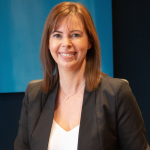 12:00 - 12:45
12:00 - 12:45Parallel Session: Joining the Family Company Board - Should I be Worried?
By Yvette Gray Director, Actron Air, Alinta Wilson GAICD Board Director, Woppitt Bloodstock, Robert Powell Founder and Managing Director, Family BoardsA typical rite of passage for family members often includes joining the board of directors of their family company. This might include those who have only ever worked in operational roles in the family business, without the experience or learned skills of professional directors, and without an understanding of the fiduciary obligations and legal responsibilities they are assuming. This session will examine the key considerations family members need to be aware of when considering joining the family board, including discussion on the board's governance role vs the role of management of the company, how to prepare for a board position; and some well-known examples of companies which got it right (and wrong). The session will include commentary from a panel of current family company directors who will add their own personal experiences to the discussion.Parallel Session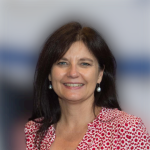 12:00 - 12:45
12:00 - 12:45Parallel Session: The Kelly Story: Family Business to Business Family
By Jo Kelly Financial Controller and Payroll Officer, Kelly Engineering, Shane Kelly Managing Director, Kelly EngineeringKelly Engineering was started by Peter Kelly over 30 years ago as an extra enterprise to support the family farm financially. Since then the business has enjoyed strong growth – both in Australia and its exports to all corners of the globe. Peter’s ingenious invention, the diamond harrow, is a tillage device that rebuilds soils, preserves moisture and improves the profitability of farms sustainably and holistically. Peter’s son Shane could see the diamond harrow’s potential and wanted to dedicate the full resources of the business to see how far this idea could be taken. These growth ambitions meant that Kelly Engineering had to change from thinking and acting like a small, regional company to a large, globally-focused company. Hear from second-generation husband and wife, Shane and Jo Kelly who will discuss their approaches to innovation and the growth process and the prevalent challenges within the family regarding differences and comfort levels around risk. They will also share their insights into the benefits of bringing into the family-run operation non-family managers as part of the succession process and investors as part of the growth cycle and the family business’s core values to ensure that the legacy they leave is a positive one for their children, grandchildren and their future generations. Facilitated by Dr Chris Graves, University of Adelaide Business School.Plenary Session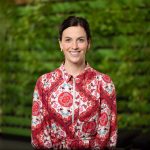 12:00 - 12:45
12:00 - 12:45Parallel Session: Intellectual Property: Protecting Your Family Business Legacy
By Katie Pote Senior Associate, Cowell Clarke Commercial Lawyers, Ross Doonan Founder and Director, Deco AustraliaWhilst succession planning plays a major role in securing the future of family businesses, protecting their intellectual property can often be just as important, yet is something that is regularly overlooked – often with devastating consequences. As the success of a business grows and strengthens, so does the brand and the various elements that customers and business associates align with the recognition and experience of that brand. It takes years to develop a business and brand recognition – but only a moment to lose if it’s not protected. In 2022, after two years of proceedings, Australian manufacturer of timber-look aluminium building products and family business, DECO Australia, was successful in its Federal Court action against Chinese company Aliwood Pty Ltd. The case involved the alleged infringement by Aliwood of DECO’s certified Innovation Patent for DecoClad, DECO’s solid aluminium wall cladding. In this session DECO Australia’s Director Ross Doonan will share how their family business came under threat of losing their unique designs that the business has invested time, resources and money into developing in order to meet the needs of their customers. He will explain how DECO protects these innovative designs through Patents and Design Registrations and their fight to protect their innovations from those who seek to play outside of the rules. DECO Australia is an innovative leader in product design within Australia’s manufacturing and construction industries and is dedicated to both protecting intellectual property and strengthening the Australian manufacturing industry. Their victory in the Patent Infringement Case showcases the importance of intellectual property to Australian businesses, Australian manufacturing, Australian jobs and the legacy of Australian family businesses. This session will begin with a presentation by Katie Pote on understanding the different types of business IP and IP protection.Parallel Session- 12:45 - 13:30
Lunch
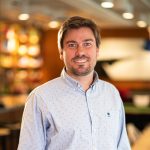 13:30 - 14:15
13:30 - 14:15Keynote: Solvay - An Enterprising Family in the 21st Century - How the Legacy has Helped the Family and Business be more Resilient
By Arnaud de Coninck CRO, Trusted FamilyPresident Trudeau recently said, “The pace of change has never been this fast, yet it will never be this slow again” and even though family businesses have been traditionally hard-wired for longevity and stewardship, family enterprises must adapt and evolve to survive. Solvay has been adapting to an ever-changing World for more than a Century and a half. It had to reinvent itself many times, always building on a strong heritage of social responsibility, technical excellence and a family character. The Belgium company was born in 1863 out of a technological breakthrough, the ammonia-soda process set up by Ernest Solvay and a small circle of relatives including his brother Alfred. Solvay embarked on a rapid international expansion and in 1900, 95% of the soda ash consumed in the World were produced using the Solvay process. The Group survived both World Wars, thanks to its family shareholder base and jealously guarded manufacturing secrets and by the early 1950s, Solvay diversified and resumed its global expansion. Sixth-generation family shareholder Arnaud de Coninck will not only share the unique evolution of the company but will also discuss how the family business has sustained its longevity by being prepared to evolve and innovate, the role of the owners in supporting this approach and the measures taken to achieve their purpose.Keynote Presentation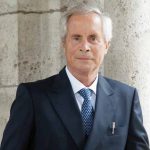 14:15 - 15:00
14:15 - 15:00Plenary Session: The Challenges of Legacy
By Count Andreas von Faber-Castell Former Director of the Asia Pacific Region, Faber-Castell, Natalie Grace (nee Faber-Castell) Owner, Music Meditation MotivationDealing with the loss of the family patriarch is difficult enough, but dealing with the unexpected loss of the owning patriarch in a large family business adds extra complexity, especially for the business decisions that arise during – and after – such a significant, emotional event. This session will explore the challenges faced by global brand, Faber-Castell to maintain the family business legacy following the tragic loss of 8th generation Count Anton Wolfgang Graf von Faber-Castell in 2016. Faber-Castell was founded in 1761 by Caspar Faber and has evolved from a small-scale handicraft enterprise to a company with international standing. It has been owned and managed by direct descendants of the founder for nine generations, making it one of the world’s oldest family-owned companies. Count Andreas von Faber-Castell, the late Count Anton Wolfgang von Faber-Castell’s brother, was Faber-Castell’s Director of the Asia Pacific region, based in Australia. In this session, Count Andreas and his daughter, Natalie Grace, will share the evolution of the family business, their perspectives on the impact of changes to the ownership structure after Count Anton’s death and the challenges of maintaining the family business legacy following his untimely passing. Facilitated by Dr Donella Caspersz Senior Lecturer and Director, UN PRME at the University of Western Australia Business School.Parallel Session- 15:00 - 15:30
Afternoon Tea
 15:30 - 16:30
15:30 - 16:30Keynote: Let your Light Shine
By Jett Heysen-Hicks General Manager, MindChamps Innovations, Kerry Heysen AM Film Producer and Company Director, Kino Films Group of Companies, Scott Heysen Data Manager, Technical Advisor and Systems Administrator, Kino Films Group of Companies, Scott Hicks Film Director, Writer, Producer and Company Director, Kino Films Group of CompaniesStorytelling is one of the greatest ways for humans to experience connection, and in family business, no two stories are the same, making family legacies unique and captivating. Kerry Heysen and Scott Hicks are no strangers to storytelling and working collaboratively in a family business. The power film couple have been behind acclaimed South Australian films, including Shine, Highly Strung and The Boys Are Back. Together, their extensive works include the feature films Fallen, The Lucky One, Glass: A Portrait of Philip in 12 Parts, No Reservations, Heart in Atlantis and Snow Falling on Cedars. Today the Hicks Heysen partnership has extended to producing grapes from their Yacca Paddock Vineyard on South Australia’s Fleurieu Peninsula. From the outset, Hicks and Heysen worked together intimately, sharing each other’s visions and practical realities, with many discussions about their work held around the kitchen table at night with their two sons, Scotty, and Jett. Scott, Kerry, Scotty and Jett will take us through the power of storytelling to not only inspire in life and business but to remind us that we are all connected to something greater than ourselves. This session will explore how sharing stories in a family business can unite a family and their company and capture a lasting legacy that can be passed down and celebrated by future generations. Facilitated by Peter Goers.Keynote Presentation- 18:30 - 19:00
Pre-Dinner Drinks
- 19:00 - 23:00
Family Business Awards Dinner
A highlight of this year’s event will be the Family Business Awards evening. The opportunity to celebrate and recognise the achievements of family owned Australian and New Zealand businesses. This year’s Master Of Ceremonies will be TV personality and Radio Host, Andrew Daddo.Social Event
 07:00 - 08:30
07:00 - 08:30Women In Family Business Breakfast
By Karen Fistonich Director, Fistonich Family Wineries, Corrina Wright Winemaker and Director, Oliver’s Taranga Vineyards, Bec Hardy Joint Director, Bec Hardy WinesThe roles of women in a family business are as diverse as the women themselves. Women are taking on more visible roles and key leadership positions within the family business, with an estimated 50% of next-generation family business leaders being women. * Hear from these three inspiring women in wine on their impact globally in diversifying the industry, the challenges in generational family ownership, and how the lessons learned have ultimately shaped their very different legacy pathways. We welcome all genders at this event, and we encourage everyone to come along and hear from a panel of incredibly impressive women in a family business. Facilitated by Lea Boyce, BOYCE Family Office.Social Event- 08:30 - 09:00
Registration
- 09:00 - 09:15
Day Two Welcome
- Every family business has a story. Sharing that story plays a pivotal role in legacy building across generations. Raised in the Blue Mountains, Emily Hammon is a 3rd generation member of the family business Scenic World Blue Mountains, Australia’s largest privately owned tourist attraction. Emily will share how she has brought her family business story to life in a tangible and creative way to connect both current and future generations.Social Event
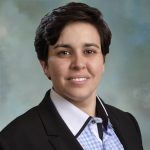 09:30 - 10:30
09:30 - 10:30Keynote: How Identity is Changing the Face of Family (Enterprises)
By Natalie McVeigh Managing Director, EisnerAmper’s CenterTo develop and maintain a lasting legacy for your Family Business it’s crucial that you develop and foster a culture of inclusivity and support within the family itself. How else can you be sure that the extraordinary foundations you have laid will be passionately carried on by future generations? It was once true that families were homogenous and, therefore, the chances that your children, grandchildren and future generations would hold similar views, have similar passions, carry on family traditions and meet family expectations were justifiably high. But society has changed. Young people now have an enormous range of opportunities before them. In-laws, grandchildren and cousins are very often multi-cultural or hold different political, religious and societal views. Although there is still a way to go, women are well on the road towards equality and gender orientation and sexuality are far more fluid than they were in the 20th century. All of these changes in society must now be taken into account in all organisations. In a Family Business gaining the skills to communicate and embrace all of the changes to modern society will not only develop even stronger ties with all family members (and employees), but also set you and your business up for a legacy that will withstand the test of time. In this session, Natalie McVeigh will explore the nuances of how these cultural changes can influence communication between family members, discuss some of the challenges individual family members may be dealing with and prepare you for how the conversations within your family can shift.Keynote Presentation- 10:30 - 11:00
Morning Tea
- With massive labour and skills shortages, technological advances and generational change, it is not uncommon for family business workplaces to change more rapidly than the underlying business principles and practices which support them. Finding and keeping good people is, more than ever, essential, no matter the organization or the industry: we’re now all in the ‘people’ business. In this thought-provoking presentation, Mandy Johnson explores innovative ways to navigate effectively in this rapidly-changing world. She outlines practical tools and techniques to engage the best people and build a high-performance workplace that they will never want to leave.Keynote Presentation
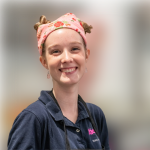 12:00 - 12:45
12:00 - 12:45Plenary Session: Digital Business Invigoration by the Younger Generation
By Annabelle King Sticky Lollies, Marketing Manager, David King Sticky Lollies, CEO, Rachel Turner Sticky Lollies, CFOLocated at Sydney’s The Rocks, Sticky Lollies is an iconic family business whose candy creations have entertained many tourists stepping off cruise ships to see what Sydney has to offer over the years. But when the COVID-19 pandemic hit, they found themselves in a sticky situation. Owners David and Rachel were faced with many difficult decisions due to dwindling sales - their solution was not your obvious pivot. As they no longer had crowds to entertain, it was time to take their talent to social media. The couple’s 17-year-old daughter Annabelle looked to one of the most used social media platforms (TikTok) to increase sales. While this idea led to some initial confusion amongst the team, the business has never looked back. In this session, we will hear from David, Rachel and Annabelle about how the two generations communicated during the crisis and, as exciting as the sales results were, what new challenges they brought with them. They’ll also discuss how they manage dinner table conversations when Annabelle’s sister is not involved in the company and how their business model has changed because of their pandemic pivot. Hosted by Partner and National Head of Family Business Consulting at Grant Thornton Australia, Kirsten Taylor-Martin, the panel will explore how David and Rachel embraced social media and how they will approach future new ideas. What has Annabelle learnt from her idea being adopted and how will she pitch ideas differently in the future? How can family members learn and be inspired by the younger generation? The audience will also be entertained with some of Sticky’s TikToks that have taken the world by storm. Facilitated by Kirsten Taylor-Martin, Client Director at Grant ThorntonPlenary Session- 12:45 - 13:30
Lunch
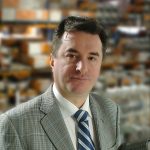 13:30 - 14:15
13:30 - 14:15Parallel Session: Adapting to Tough Customers
By Ennio Mercuri Managing Director, Ennio International, Jean-Yves Heude Founder and Owner, Chessmate Consulting, Anthony Paech Managing Director, Beerenberg FarmAustralia’s manufacturing and production sector is home to many successful family-owned businesses that deal with a myriad of complexities every day. Many are discovering pressure on their profit because of tougher and tougher negotiations with their corporate clients. When a key client aggressively negotiates pricing, family businesses often feel powerless and feel like they are facing a dilemma. They can’t afford to lose the business, but they can’t afford to satisfy the buyer’s request either. Confrontation will poison the water, but compromise will destroy their margin. With 25 years’ experience in blue chip FMCG Companies (Kellogg’s, Mars, Martini), followed by 10 years assisting Australian family businesses to increase their profitably in tough retail environments, Jean-Yves Heude will share his insights in successful sale/purchase negotiation across many industries. Jean-Yves will be joined by his client 6th generation Anthony Paech (Beerenberg) and Anthony will share how Beerenberg has learnt the art of negotiation through mentoring, and how they have successfully grown their businesses by changing their Sales Negotiation program. Joining them is Ennio Mercuri from Ennio International who will add to the value of the discussion as he outlines his own experiences in negotiation with his broad client and market base. Facilitated by Bevan Roberts SA Partner, Succession Plus.Parallel Session 13:30 - 14:15
13:30 - 14:15Parallel Session: “Faraway and Beyond”: Ensuring a Family Legacy
By Nathan Wessling Non-Family Executive (CEO), AJ & PA McBride, Jane McBride Board Director, AJ & PA McBride, Nick McBride Chairman, AJ & PA McBrideFaraway is found beyond the city boundaries. It’s a place where sheep graze in scrubby bluebush hills and where the McBride family began its pastoral dynasty more than one hundred years ago. AJ & PA McBride is one of the country’s largest wool producers, running in excess of 250,000 merino sheep across ten properties in South Australia and Victoria, and covering more than 1.4 million hectares. Whilst predominantly sheep and wool focused, the company produces beef cattle and has investments in viticulture, as well as an off farm commercial property. Celebrating over 100 years in business and into its 6th generation, there are very few family members working in the business, but all 130 shareholders of the AJ and PA McBride company are descendants of Albert McBride, who bought the group’s first Faraway Hill sheep station near Burra in South Australia’s Mid North in 1902. Almost all the shareholders see themselves as custodians of the family business assets. From Faraway Hill to the modern multi-million-dollar livestock enterprise of Telopea Downs, this family company has remained committed to the fortunes of the fleece. Join 5th generation family member and Chairman, Nick McBride together with his cousin and board member Jane McBride and non-family executive Nathan Wessling, as they discuss how a strategic focus has contributed to ongoing sustainability and longevity of the family business; how the board directors are impacting the family’s current aims and objectives to achieve a lasting legacy; how they retain and promote positive shareholder engagement and a commitment to being custodians of the family business and the role of the non-family CEO in balancing family interests and more risky behaviours to enhance performance. Facilitated by Dr Jill, Thomas University of Adelaide Business School.Parallel Session 13:30 - 14:15
13:30 - 14:15Parallel Session: The Who, What, When, Where, Why and How of Family Councils
By Lydia Blakemore Hammons Holdings, Emily Hammon Hammons HoldingsThe establishment and running of a family council creates a safe environment for your legacy to be captured and assists with the transfer of this legacy to the next generation. This session will provide insights into the workings of a real family council and how you can set one up for your own family. It will provide tools and insights to ensure you can confidently set up your family council and ensure that it continues to operate successfully into the future. Lydia and Emily are 3rd generation family members and sit on their family council which has been operating for over 18 years. They have many years of practical and professional experience running and being a part of family councils. They will share ideas regarding their family council and forums for the benefit of current and future generations.Parallel Session 14:30 - 15:15
14:30 - 15:15Plenary Session: Unpacking the Keys to Successful Sibling Relationships in a Business Family
By Zoe Detmold General Manager, Detmold Group, Sascha Detmold Cox Executive Group General Manager, CEO and Director, Detmold Group, Pippa Detmold Group Manager of Commercial Excellence, Detmold GroupWorking with family can be a rewarding experience, but there are many challenges of family dynamics when running and operating a closely held, family-run business. As challenging as parent/child relationships can be, likewise is the challenge for siblings to operate as co-owners. Siblings may always have each other’s backs and know how to work well together whilst others may wonder what are the keys to successful sibling relationships. In this session, we will hear from sisters, Pippa, Sascha and Zoe Detmold from the Detmold Group on families working together. They will share some sibling entrepreneurial success stories as well as explore how they are preparing themselves to be the owners of the business. This session will also look into the key powers that come with ownership and how business families can exercise these privileges in ways that will sustain rather than destroy the family and the business. Established in 1948, the Detmold Group are global innovators in sustainable paper and board packaging solutions supplying some of the world’s largest and most iconic food and retail brands. Facilitated by Lowen Partridge, Peartree Brand Strategy.Plenary Session- 15:15 - 15:45
Afternoon Tea
- Disruption is the new normal. We need to be able to anticipate and respond to change, regardless of our role in the business. That is, we need to learn how to think like a futurist. Hear from one of Australia’s leading (and few accredited) futurists on what the future has in store based on some innovations and trends from around the world today. In this keynote, Ben will cover the art and science of what futures thinking is and the benefits to both you and your organisation so that you can better anticipate and embrace change, ambiguity, and alternate futures in the pursuit of legacy.Keynote Presentation
- 19:00 - 23:00
Final Dinner
*Program subject to change


